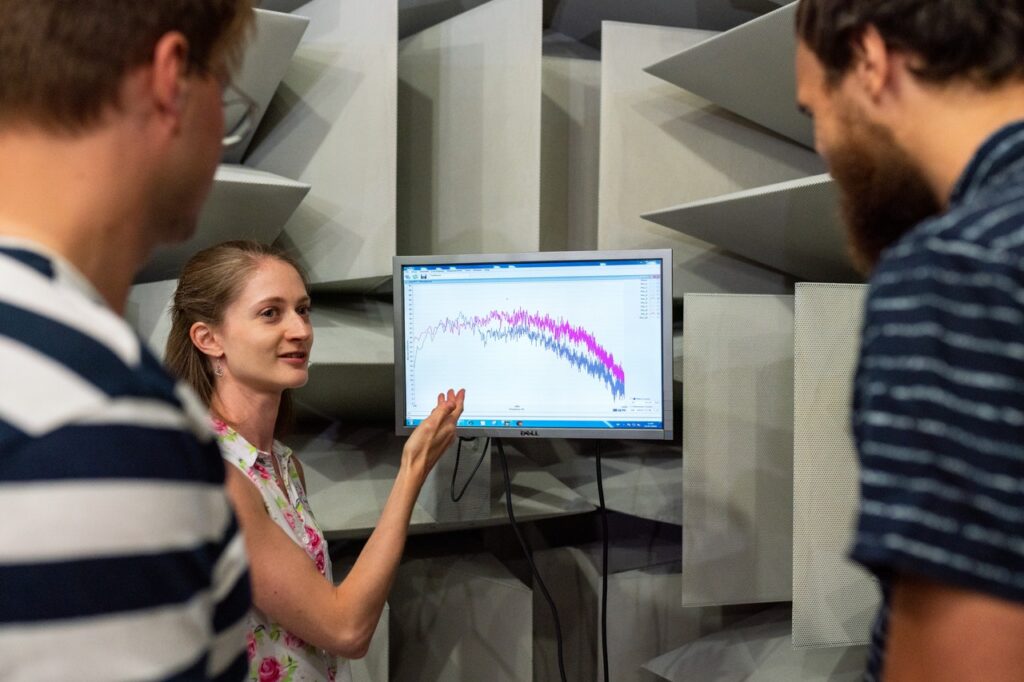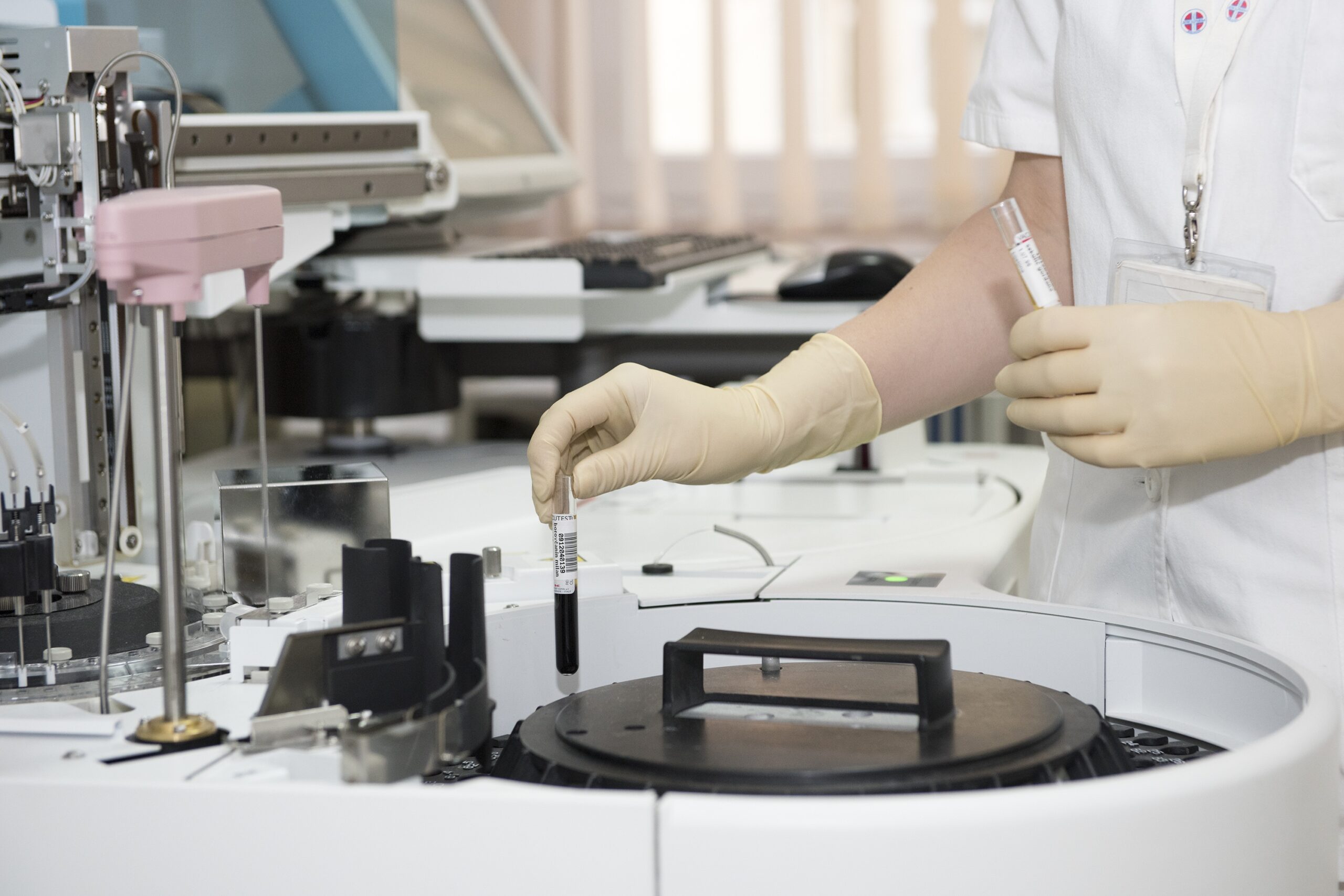Are you a mechanical engineer in the biomedical field? Are you a mechanical engineering student interested in working in the biomedical field? Do you have a general interest in the mechanical or biomedical field? Whatever your cause, find out all you need to know on this topic in our latest post below!
Mechanical Engineer
Mechanical engineering is a very broad field, including disciplines such as structural analysis, machine design, system dynamics & controls, fluid dynamics, and thermodynamics. It is possible to spend an entire career focused on just one of the disciplines mentioned. Because of this, it is typical for different mechanical engineers to have completely different skill sets. The breadth of the field also allows mechanical engineers a lot of flexibility in deciding what discipline they want to focus on. There is a huge array of fascinating options, all of which could lead to an exciting and fulfilling career.
Mechanical engineers are responsible for the analysis, design, testing, and manufacture of machines and other equipment. Mechanical engineering is an incredibly diverse and broad field in the sense of the industries that mechanical engineers work in, the types of products that they work on, and the knowledge required of a mechanical engineer to be successful.
Mechanical engineers work on systems throughout different phases of a product’s life cycle. These phases include analysis, concept development, detail design, testing, production, and operation. Some engineers will work on a product throughout the entire life cycle, from the “cradle to grave.” Other engineers can then focus on a specific phase of the life cycle. For instance, a dedicated structural analyst will typically focus primarily on the analysis phase of the life cycle, whereas a field engineer will focus primarily on the operation phase and will assist in troubleshooting a deployed system.
Most mechanical engineers have attained at least a bachelor’s degree in mechanical engineering or a related field. Some mechanical engineers hold higher degrees such as master’s and PhD’s. Although higher level degrees are not typically required for entry level jobs, they may be required for positions focused on research. If you want to provide mechanical engineering services directly to the public, then you will also need to obtain a Professional Engineer (PE) license.
Biomedical Engineer
Biomedical engineering is a discipline that advances knowledge in engineering, biology and medicine, and improves human health through cross-disciplinary activities that integrate the engineering sciences with biomedical sciences and clinical practice.
Students choose the biomedical engineering fields to be of service to people; for the excitement of working with living systems; and to apply advanced technology to complex problems of medical care. Biomedical engineers are a part of a multidisciplinary healthcare team, a group which includes nurses, physicians, and technicians.
Biomedical engineers design instruments, devices, and software used in healthcare; develop new procedures using knowledge from many technical sources; or conduct research needed to solve clinical problems. They frequently work in research and development or quality assurance.

Biomedical engineers also design electrical circuits, software to run medical equipment, or computer simulations to test new drug therapies. In addition, they design and build artificial body parts, such as knee and hip joints. In some cases, they develop the materials needed to make the replacement body parts. They also design rehabilitative exercise equipment.
A bachelor’s degree in biomedical engineering is generally the minimum requirement to become a biomedical engineer. These programs combine general engineering coursework with biology and chemistry courses.
Mechanical & Biomedical Engineer Education
Mechanical Engineer
Mechanical engineers typically need a bachelor’s degree in mechanical engineering or mechanical engineering technology. Mechanical engineering programs usually include courses in mathematics and life and physical sciences, as well as engineering and design. Mechanical engineering technology programs focus less on theory and more on the practical application of engineering principles. They may emphasize internships and co-ops to prepare students for work in industry.
These programs provide students with a strong foundation in mechanical engineering science and design, and emphasizes the development of effective communication, teaming skills, and professional responsibility, in preparation for a career in a diverse global workforce.
Throughout the curriculum, students are exposed to mechanical engineering methods using hands-on state-of-the-art experiments, modern computational tools, and problem synthesis and solution approaches.
Some colleges and universities offer 5-year programs that allow students to obtain both a bachelor’s and a master’s degree. Some 5-year or even 6-year cooperative plans combine classroom study with practical work, enabling students to gain valuable experience and earn money to finance part of their education.
ABET (Accreditation Board of Engineering & Technology) accredits programs in engineering and engineering technology. Most employers prefer to hire students from an accredited program. A degree from an ABET-accredited program is usually necessary to become a licensed professional engineer.

Biomedical Engineer
Those interested in becoming biomedical engineers should take advanced placement science courses including biology, chemistry, and physics. Challenging math courses such as calculus can help aspiring biomedical engineers develop the skills they need to make precise calculations. Other classes that could prepare one for this line of work include mechanical drawing, drafting and computer programming.
A four-year degree in biomedical engineering is required before one can obtain a graduate degree. This degree requires eight to nine semesters of coursework, which means it could take between three and five years to complete. Some classes that could be required include an introduction to bio engineering, medical imaging, instrumentation systems, and microprocessor interfacing.
Earning a master’s degree in biomedical engineering can take between 18 and 24 months after obtaining a bachelor’s degree. Some of the classes that students might be required to take include imaging and bio-materials, bio-metrics, neuro-engineering and bio-mechanics.
Mechanical & Biomedical Engineer Job Description
Mechanical Engineer
Mechanical Engineers design, manufacture, and evaluate mechanical devices, such as industrial machinery, heating and cooling systems, transportation systems, robotics, and tools.
The majority of mechanical engineers spend a large portion of their time working in an office. They will typically spend much of the day working at a computer. Other common work activities include attending meetings, visiting the shop floor to check on production, or conducting site visits to install or help troubleshoot equipment. Job responsibilities vary greatly according to the size and type of employer.
Some job responsibilities of a mechanical engineer include:
- Applying principles of mechanics, thermodynamics, hydraulics, heat transfer and materials
- Analyzing problems and determining how they can be fixed by mechanical or thermal devices
- Analyzing test results and changing design as needed
- Carries out detailed mechanical design work including 3D modelling, simulation (eg thermal & stress) and design verification testing, as required
- Developing and testing prototypes of designed devices
- Overseeing the manufacture of device
- Reading blueprints, technical drawings, schematics and computer-generated reports
- Responsible for the specification compliance of designs
- Responsible for mechanical part selection taking into consideration obsolescence, availability and cost
- Responsible for preparing and presenting mechanical designs at design reviews
Biomedical Engineer
Biomedical engineers typically design biomedical equipment and devices, such as artificial internal organs, replacements for body parts, and machines for diagnosing medical problems. Install, adjust, maintain, repair, or provide technical support for biomedical equipment.

Some job responsibilities of a biomedical engineer include:
- Design and development of cardiac pacemakers, defibrillators, artificial kidneys, blood oxygenators, hearts, blood vessels, joints, arms, and legs.
- Design computer and information systems to monitor patients.
- Design instruments and devices for therapeutic uses.
- Developments of strategies for clinical decision making based on expert systems and artificial intelligence.
- Design, developments and research in the area of medical imaging systems such as computer assisted tomography (CT), position emission tomography (PET), magnetic resonance imaging (MRI), ultrasound, or newer modalities.
- Development of mathematical/computer models for studying physiology.
- Design and development of advances biomaterials.
- Research in the area of biomechanics, sports mechanics and optimizations of human performance.
Mechanical Engineer in the Biomedical Field
Mechanical and biomedical engineers both spend time developing design plans for products related to their field. Mechanical engineers concentrate more on product manufacturing and fixing technical issues while biomedical engineers can concentrate on a number of specialization areas that may emphasize medical research or developing methods to diagnose and treat medical conditions.
While mechanical engineers primarily focus on developing design plans, testing products and ensuring the devices are manufactured effectively, biomedical engineers perform a wider range of tasks that includes training medical staff, publishing information about their research and conclusions, and developing ways to improve medical treatments. Biomedical engineers may also be involved with designing products that are used in the medical field. The range of products varies from materials to software to diagnostic equipment.
Biomedical engineers (also sometimes known as medical engineers) apply engineering principles to research and development of medical applications, treatments or diagnostic technologies related to acute or chronic medical conditions. Medical engineers are employed by research organizations, manufacturers, government agencies or major medical centers.
A mechanical engineer in the biomedical field can be called a medical engineer. An engineer’s responsibilities in medicine can include research, development, testing and evaluation of medical devices, advisement on new biomedical purchases for hospitals and medical centers.
Medical engineers may specialize in medical devices, sports medicine, stem cell research, biomarkers, genomics, nanotechnology and more. Medical engineering projects can include artificial organs and prosthetic limbs, computer assisted procedures and treatments, informatics and medical imaging.

A mechanical engineer in the biomedical field is usually the person that is managing the projects and interfacing with the clients. They also contribute on some level to the technical aspects of the company, trying to find solutions and managing client interactions.
If you have anything to add, please feel free to leave a comment down below, and sign up to our newsletter for more of the same content!


